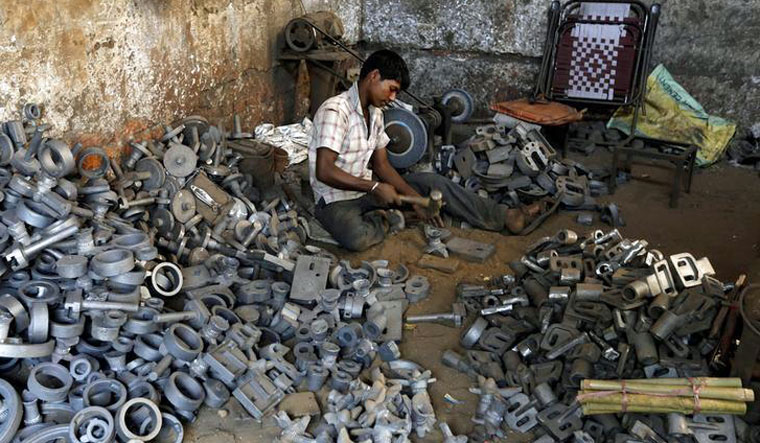As the BJP goes into campaign mode, Prime Minister Narendra Modi’s biggest challenge is going to be convincing people that he has succeeded in creating jobs in the organised sector. And that is because the sector that is most capable of creating jobs has not only registered the slowest growth, but if some statistics are to be believed, even suffered negative growth—the micro, small and medium enterprises (MSMEs).
MSMEs make up much of the manufacturing industrial sector that has been lying dormant for reasons ranging from non-availability of credit to incentives that will make them viable. They are also the units that have not cared to expand in the face of prevailing labour law reform uncertainty.
Along with being the sector that provides employment, MSMEs, according to the Federation of Indian Micro and Small & Medium Enterprises (FISME), contribute over 8 per cent to the GDP. However, owners of small units see themselves almost being in the same precarious condition as farmers.
The World Bank has estimated that the gap between supply and demand for credit in the MSME sector is over $230 billion.
Minister without Portfolio Arun Jaitley described the MSME sector as a “major engine of growth and employment generation” last year, and announced an allocation of Rs 37,794 crore for credit support and interest subsidy on innovation, as well as towards capital support, in budget 2018. The MSMEs however, had less than 18 per cent of the credit outlay, with the large enterprises—which have run up the NPAs—hogging the rest.
Most of the units in the MSME sector were hit hard by demonetisation. According to FISME, many industry bodies have submitted their list of expectations or demands to the Union finance ministry, with hopes that the interim budget on Feb 1, 2019, bodes well for the sector. According to one representative who was in the delegation, they have made a case for Rs 25,000 crore by way of capital, and sought a write-off for loans that form part of NPAs.
The MSME sector has also sought tax incentives, by way of reduced dividend tax and reduction in income tax as well as government support for transformation to digital platforms along with resources to train them, as well as funds to drive project and product innovation. Some groups—of craftsmen and artisans—have also sought a review and downward revision of GST rates.
According to the federation, the ease of doing business, in which the country has seen progress, has not happened in the MSME space.
Tarunjit Singh, owner of a small unit in Ludhiana, has no doubt that the economy can pick up substantially if the MSME sector is “nurtured properly”. According to him, “the help can take the form of exempting us from capital gains tax if we sell residential property and set up a small enterprise, employing 5 to 10 people”.



